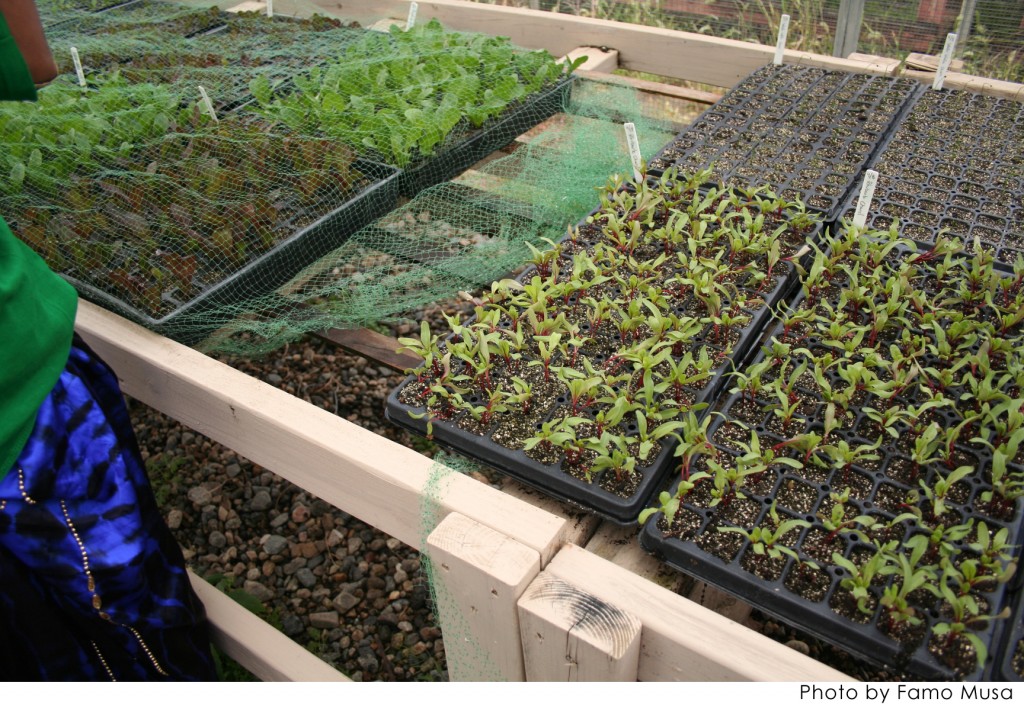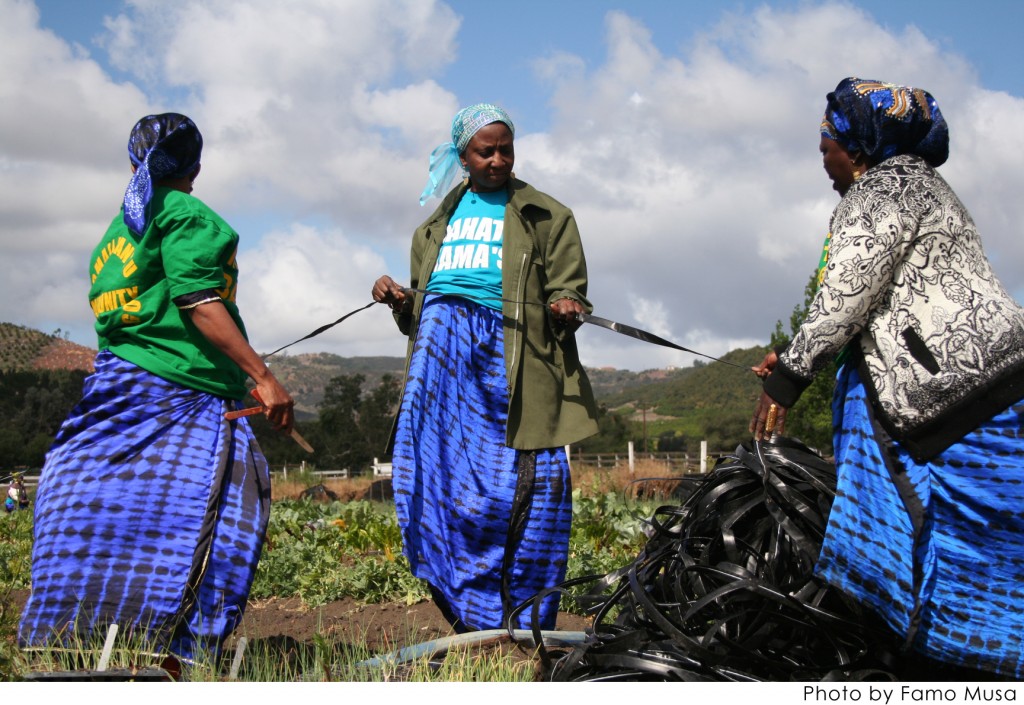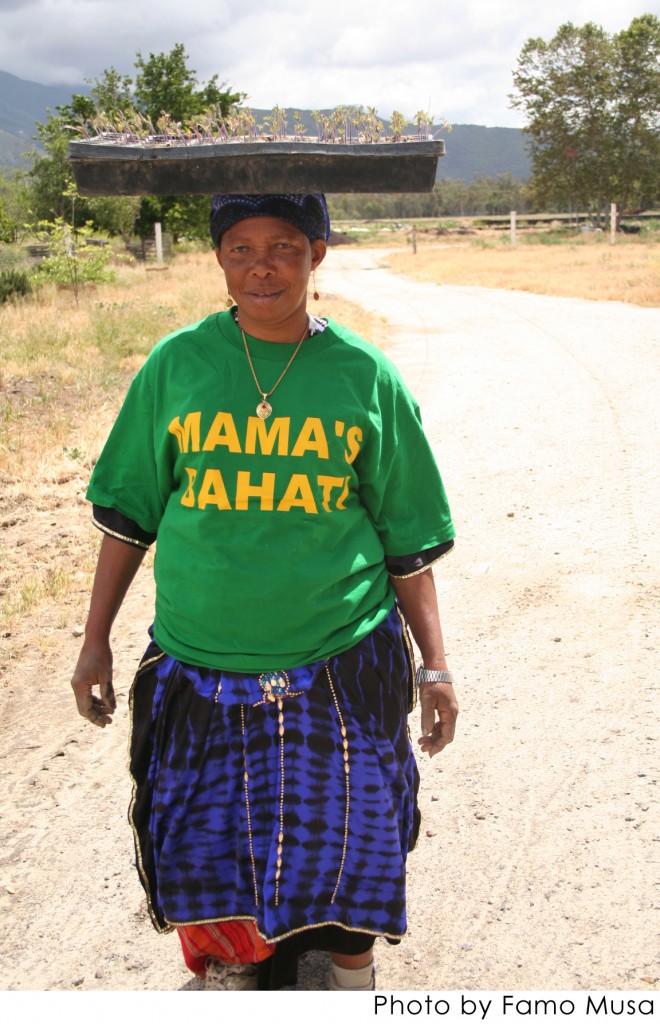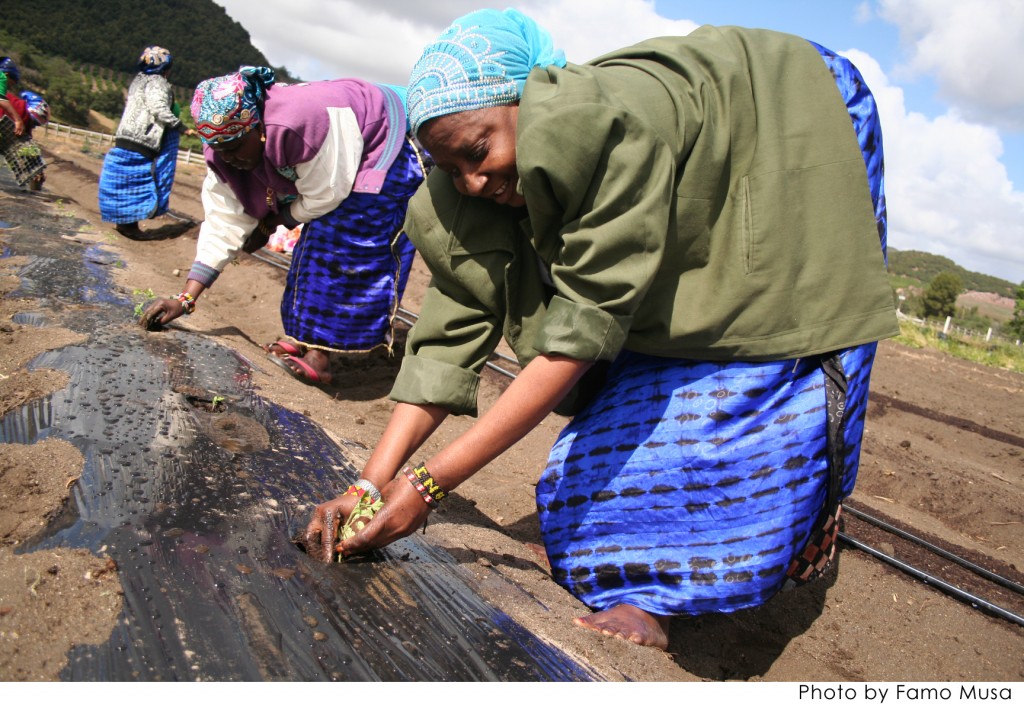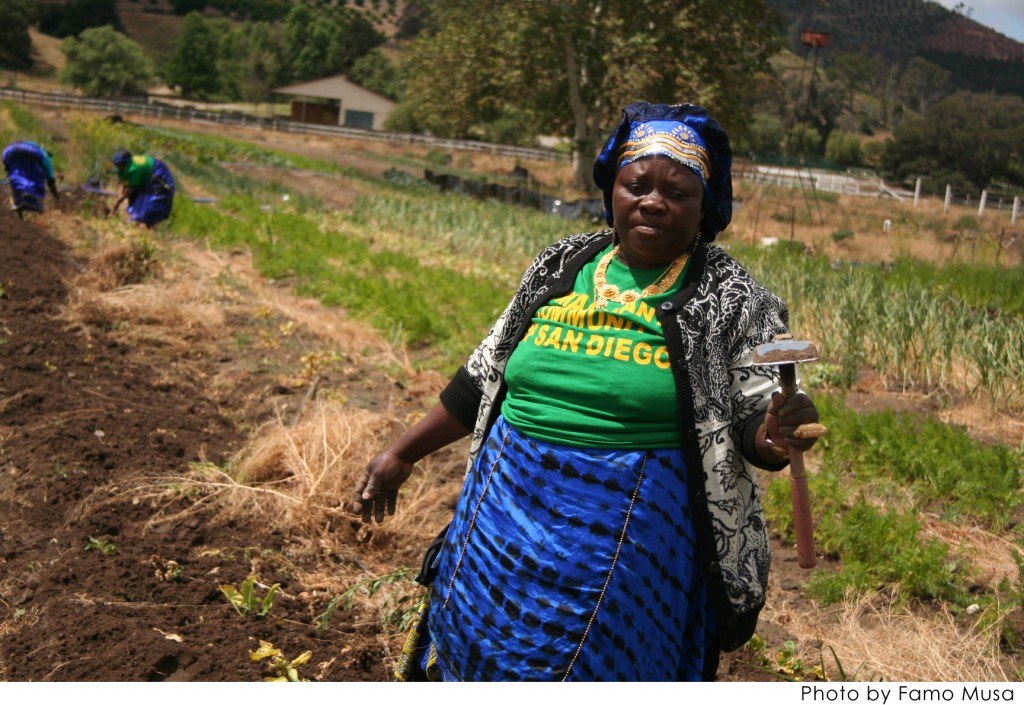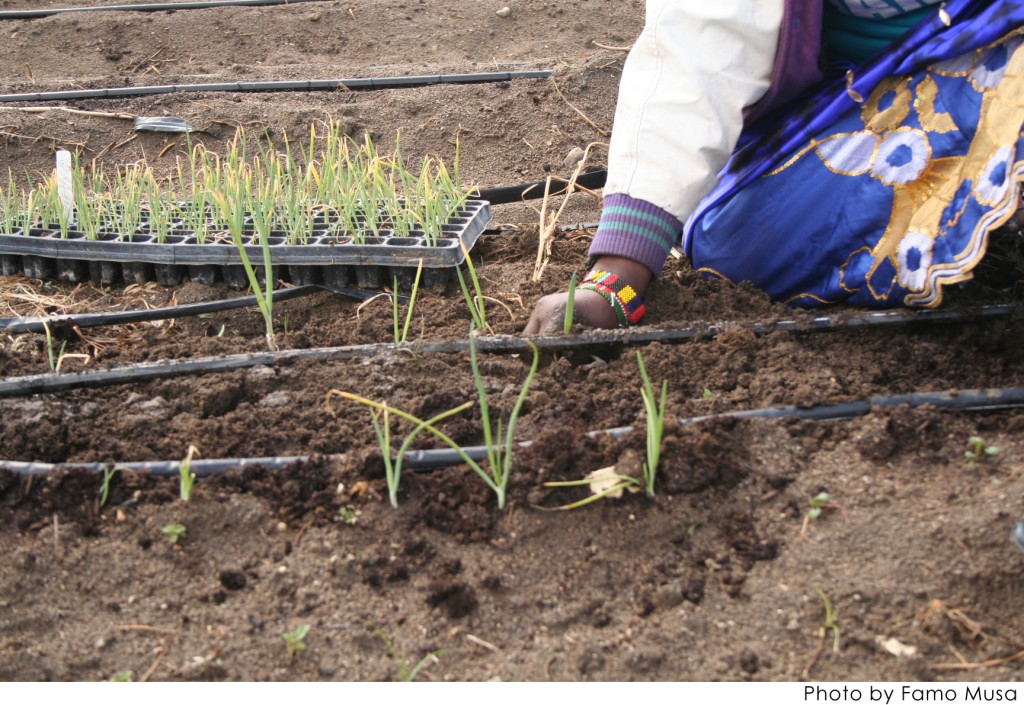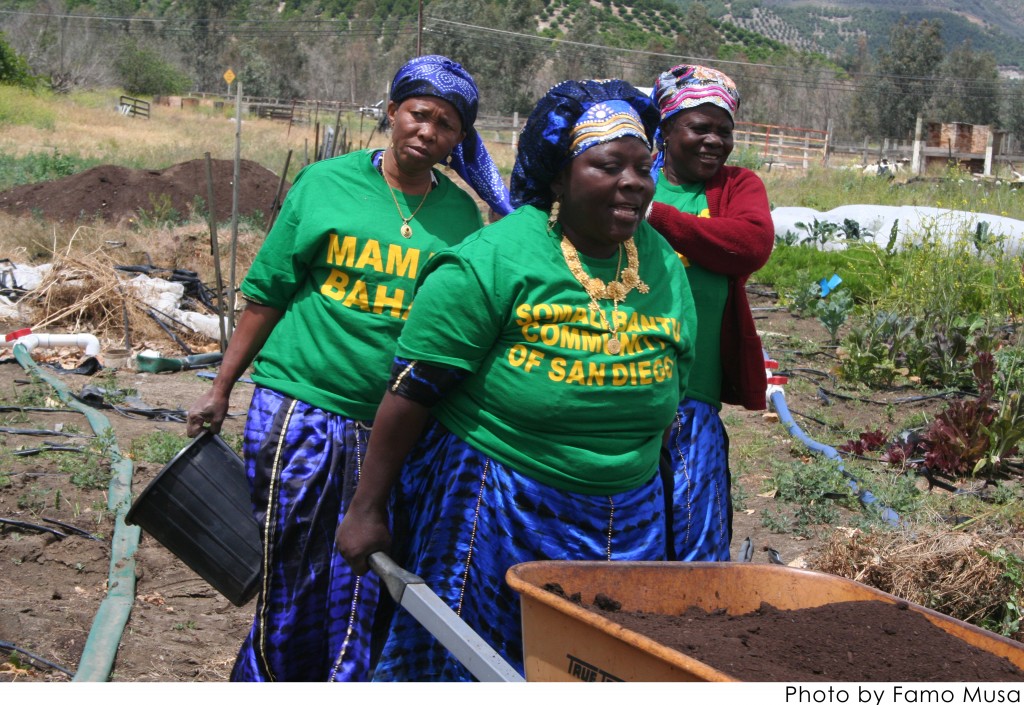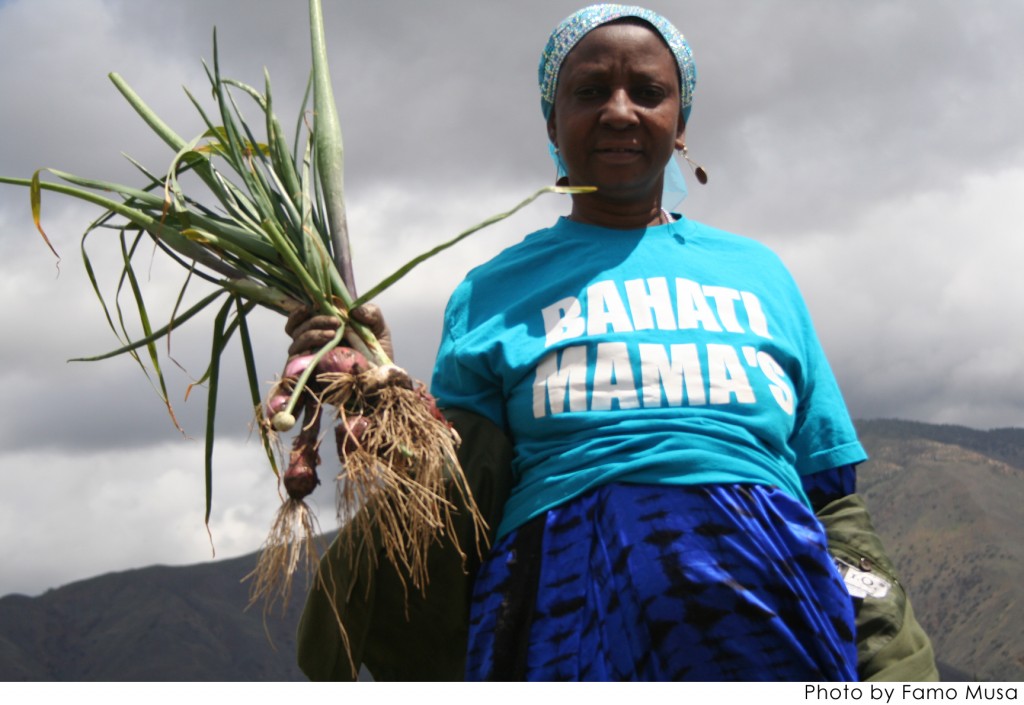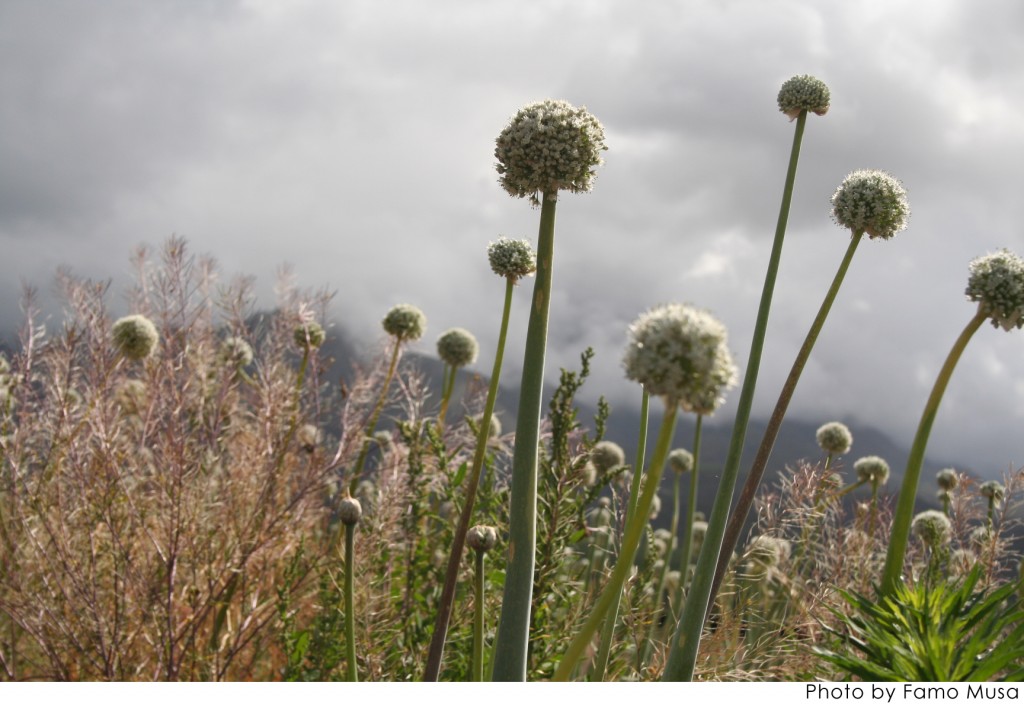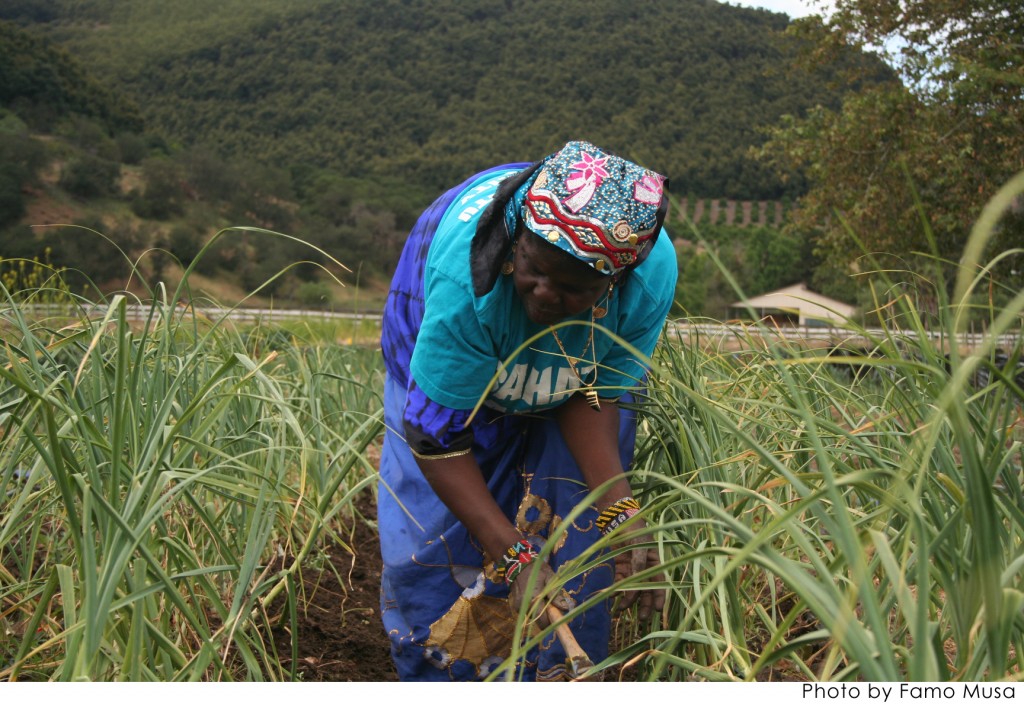
A Civil War broke out in Somalia in 1991 that put the Somali Bantu, an unarmed cultural minority group, in the middle and becoming a target of devastating violence and loss. Several of the Bahati Mamas lost their children and husbands in the conflict. City Heights resident, Khadija Musame, one of the members of Bahati Mamas is sowing the land so the water can reach the onions. | Photo Credit: Famo Musa, The AjA Project
Famo Musa is a high school student and member of The AjA Project’s Youth Advisory Council.
The Bahati Mamas, which means the Lucky Mamas, are a group of five women who are farmers, Hajia Kangame, Hawa Ahamed, Sitey Mbere, Khadija Musame and Maganey Ramazani. They have been farming together here in San Diego for five years. When they got the opportunity to farm here in America, they were very happy and grateful. Because of their lack of education they could never get a job so they got to work a job they love, pay their rent and enjoy working.
The Bahati Mamas have a green house at the Tierra Miguel farm in Pauma Valley. Sometimes they plant seeds from scratch or buy plants ready made and place them in the green house until they are in season. The Bahati Mamas choose the greens that are in season and plant them in the field. For this season they have tomatoes, spinach, onion and garlic. Sitey Mbere, a member of the Bahati Mamas, said, “Right now we are happy, but we would be grateful if the government helped us expand and plant more healthy foods and buy more equipments.” | Photo Credit: Famo Musa, The AjA Project
The Bahati Mamas started with eleven women but 6 of them moved to other states because of the cost of rent in San Diego. The Five women that are left would never think about leaving, Khadija Musame said, “I can’t see myself living anywhere else because I’m used to being able to work in a farm and in the beautiful weather.” The City Heights residents, (left to right) Hawa Ahamed, Hajia Kangame, Sitey Mbere, three of the Bahati Mamas members are unfolding a plastic irrigation system that helps water the plants. | Photo Credit: Famo Musa, The AjA Project
The Bahati Mamas sell their produce at a local famers market at City Heights and to local schools and businesses. The Bahati Mamas turned their hobby into a business in 2009; they call it the “Bahati Mamas Produce.” Hawa Ahamed, a City Heights resident and one of the Bahati Mamas, is carrying tomatoes from the green house in Tierra Miguel to the filed to plant them.| Photo Credit: Famo Musa, The AjA Project
The Bahati Mamas work at the farm for two days a week, on Saturdays and Sundays. Sometimes they take turns to be the salesperson at the famers market booth in City Heights. They work at the farm from 7:00 AM to 3:00 PM. The Bahati Mamas, (left to right) Hawa Ahamed, Maganey Ramazani, Sitey Mbere, Khadija Musame and Hajia Kangame, are planting tomatoes.| Photo Credit: Famo Musa, The AjA Project
Sitey Mbere, one of the Bahati Mamas, is holding a digging tool at the Tierra Miguel farm on April 26, 2014.| Photo Credit: Famo Musa, The AjA Project
Through massive insistence and resolution, the Bahati Mamas built new lives for themselves and their children, once again on the groundwork of farming. In their home language, Kizigua, “Bahati” means “lucky.” The “Lucky Mamas” contemplate themselves lucky to have this opportunity and are devoted to bringing people the best, excellent produce. Khadija Musame, one of the Bahati Mamas, is planting onions for the summer season.| Photo Credit: Famo Musa, The AjA Project
Before the Somali Bantu came to the United States, they thought that they would have to forget who they are and where they came from and take on a new culture. They were prepared to forget who they are and adapt to the American way just so they can have a better life for themselves and their children. It was shocking for them to have the chance to choose how they wanted to live, whether to become fully American, mix the traditions, or just be African at heart. Working in farms gave them the opportunity to live in American and be whoever they want to be, while being safe at the same time and having a future to look forward to. (front to back) Sitey Mbere, Hawa Ahamed, and Maganey Ramazani are transporting soil to the farm beds in preparation for the summer season. | Photo Credit: Famo Musa, The AjA Project
City Heights Resident, Hajia Kangame, one of the Bahati Mamas, is holding onions that she harvested so she can prepare to plant new greens for the summer.| Photo Credit: Famo Musa, The AjA Project
Growing food from the ground up: an opportunity for freedom. The Bahati Mamas wanted something they could call their own. They have six fields at the Tierra Miguel farm in Escondido. Their dream now is to expand their business and help save people by giving them the choice to eat healthy.| Photo Credit: Famo Musa, The AjA Project


